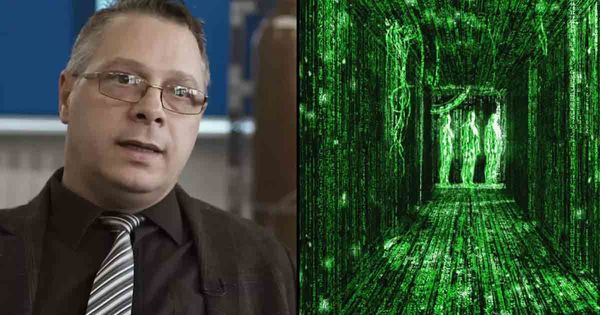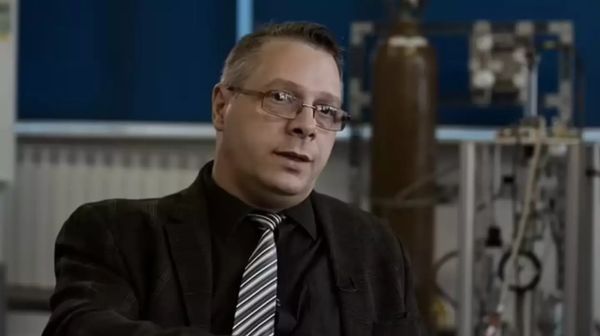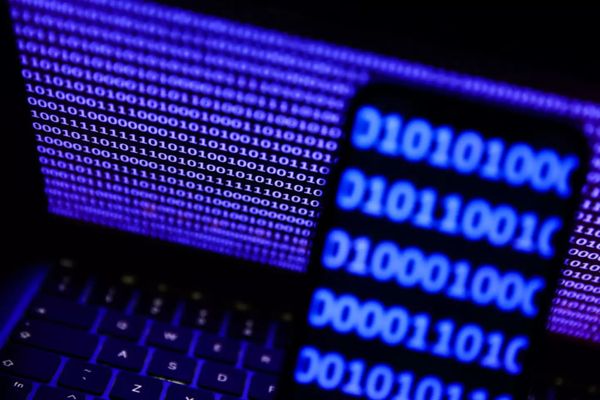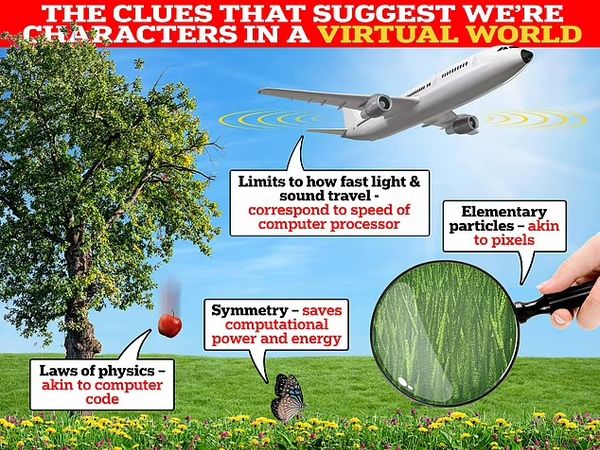Have you ever wondered if our reality is nothing more than an elaborate simulation? The idea, once confined to the realm of science fiction, is gaining the attention of scientists and philosophers alike. Dr. Melvin Vopson, an esteemed physics professor at the University of Portsmouth, is one such advocate who believes that there is compelling evidence to support the theory that we are living in a simulated universe. What’s more astonishing is that he suggests this evidence has been hidden in plain sight, within religious texts like the Bible.
Bridging Science Fiction and Reality
Simulation theory first caught the public’s imagination with movies like The Matrix. Since then, other films like The Truman Show and Free Guy have explored similar themes of characters discovering their lives are controlled by an unseen force. But what was once mere entertainment is now taken seriously by scientists like Dr. Vopson.
His hypothesis posits that our reality is a sophisticated virtual world created by advanced artificial intelligence. He not only relies on scientific observations of the universe for support but also turns to religious texts, such as the Bible, as a potential source of evidence for this theory.
Decoding the Bible as a Digital Code
Dr. Vopson takes a unique approach by intertwining theology with simulation theory. He points to the opening passage of the Gospel of John in the New Testament, which reads, “In the beginning was the Word, and the Word was with God, and the Word was God.” Vopson interprets “the Word” as more than a metaphor; he suggests it could represent a form of computer code. In this view, the universe and everything within it are governed by a complex code, like the intricate programming of a computer simulation.
According to Vopson, God, as described in this passage, is not separate from the simulation but an essential part of it. This integration of ancient theology and modern technology makes simulation theory not only plausible but also intimately connected to religious beliefs.
Clues Revealed by Nature
To support his theory, Dr. Vopson also looks to the observable universe for additional evidence. He argues that the inherent symmetry found in nature, from snowflakes to the wings of butterflies, may be a hallmark of computational efficiency. Just as modern computers employ symmetry to conserve processing power, the simulation could be doing the same.
Vopson further highlights physical limitations, such as the speed of light, as potential indications of a controlled system. The speed limits imposed on light and sound parallel the processing constraints in digital systems. The laws of physics themselves could be the “code” that governs the simulation, resembling the programming language of a video game.
Harmonizing Science and Religion
While Dr. Vopson’s interpretation of religious texts may be controversial for some, he argues that his perspective doesn’t contradict Christian beliefs but rather offers a unique pathway to reconcile the idea of living in a simulation with the existence of a Creator. Instead of dismissing the Bible, Vopson sees it as a complementary narrative to his simulation theory, aligning with religious beliefs that hold human life to be meaningful and purposeful within a larger design.
Famous Supporters of Simulation Theory
Dr. Vopson is not alone in his belief that we might be living in a simulation. Tesla founder Elon Musk and astrophysicist Neil deGrasse Tyson are among the notable figures who publicly support this idea. Musk once famously estimated the odds of us living in “base reality,” an unsimulated universe, as “one in billions.” Their endorsement provides the simulation hypothesis with credibility and has propelled it into mainstream discussion.
Questioning the Nature of Existence
Whether we believe in the simulation theory or not, Dr. Vopson’s hypothesis, blending science, technology, and theology, sparks our curiosity and challenges our understanding of reality. As artificial intelligence continues to advance, the simulation theory becomes increasingly relevant. We find ourselves questioning the very nature of our existence.
Though it may still sound like the stuff of science fiction, the idea that our reality is a highly advanced simulation is gaining traction within scientific and religious circles. And as Dr. Vopson suggests, the hidden clues may have been right in front of us all along.










